Macbeth 2020
Tuesday, April 21st, 2020What if the events of Macbeth had taken place in 2020, and the witches were forced to hold their fateful meeting online? It just might look a little something like this:
What if the events of Macbeth had taken place in 2020, and the witches were forced to hold their fateful meeting online? It just might look a little something like this:
I’ve been resisting supporting impeachment (rhetorical jokes aside) because I think it’s generally harmful for the country, and all for what? President Mike Pence?
Even when the Mueller report was released, detailing an abundance of evidence of obstruction by the president, and an explicit invitation for Congress to take up the baton (volume 2, page 8), I still wasn’t fully convinced that impeachment was the best option.
I’ve now come around. His behavior since the Mueller report was completed has been far worse than anything that’s in the report, and that’s already a high bar. The difference now is that if his power isn’t checked, it could do long lasting damage to our democracy. President Pence would be bad, but we’d survive it.
The dishonest release of the Mueller findings was just the beginning. We then saw a blanket denial of all Congressional subpoenas for documents and testimony. He’s now starting a ridiculous mock investigation into the FBI to further the cover-up of his crimes. What is impeachment for, if not for this?
In other times, the President of the United States knowingly spreading doctored videos of the Speaker of the House to make her appear drunk or impaired would be the worst thing he did this week. Now, it barely makes the list.
And if he loses in court and a judge tells him to release the documents, and he still refuses, then impeachment may not be the best option. It might be the only option. And who knows what happens next?
From Macbeth:
And you all know, security
Is mortals’ chiefest enemy.
Shift around the letters, and it becomes:
Motherfucker lousily escalates a snowy indemnity.
Sorry about the language. That’s just how the letters worked out. And civility is so 2018.
Happy 455th Birthday to Shakespeare!
In honor of the occasion, I present… Shakespeare Memes!


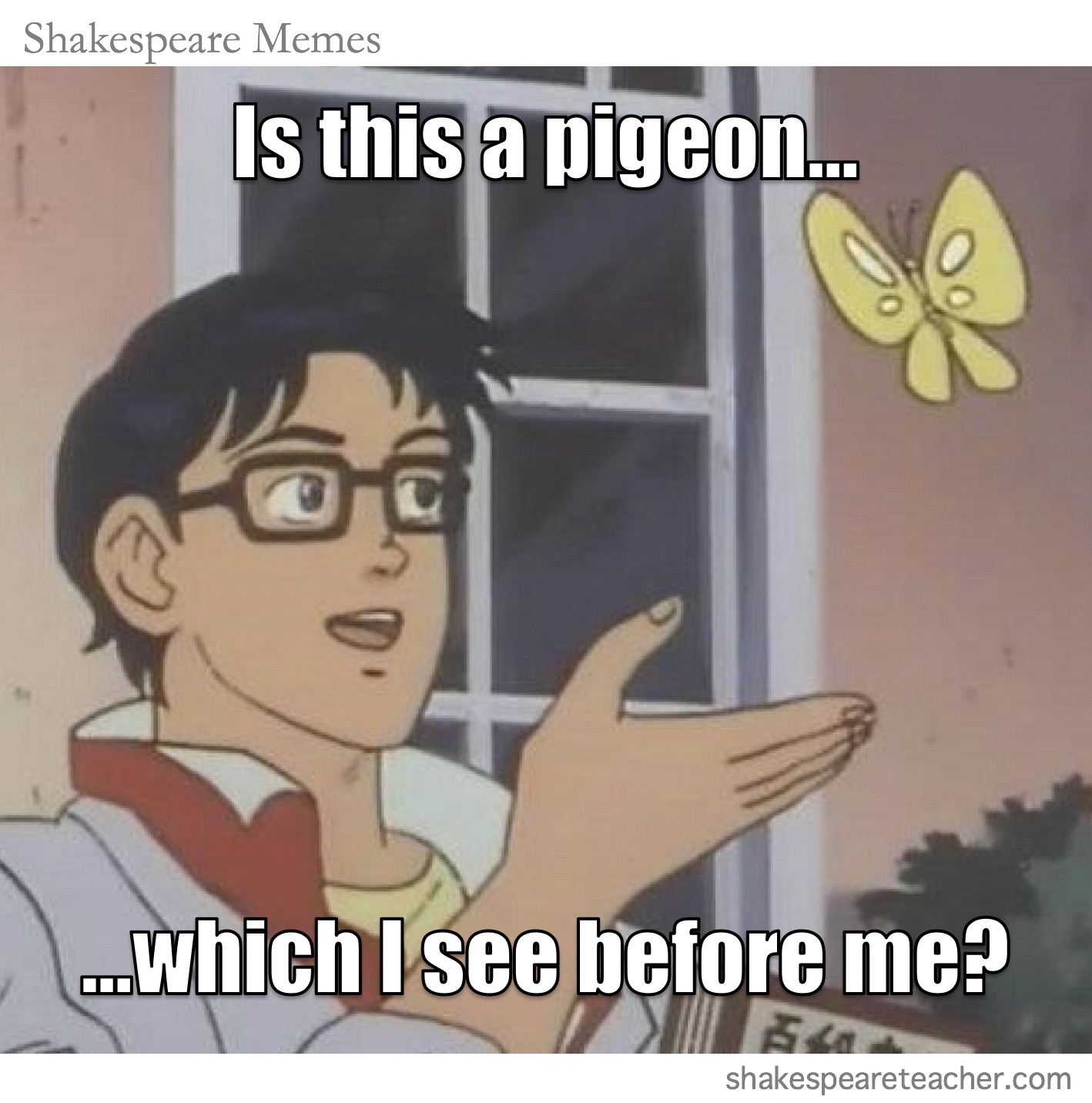




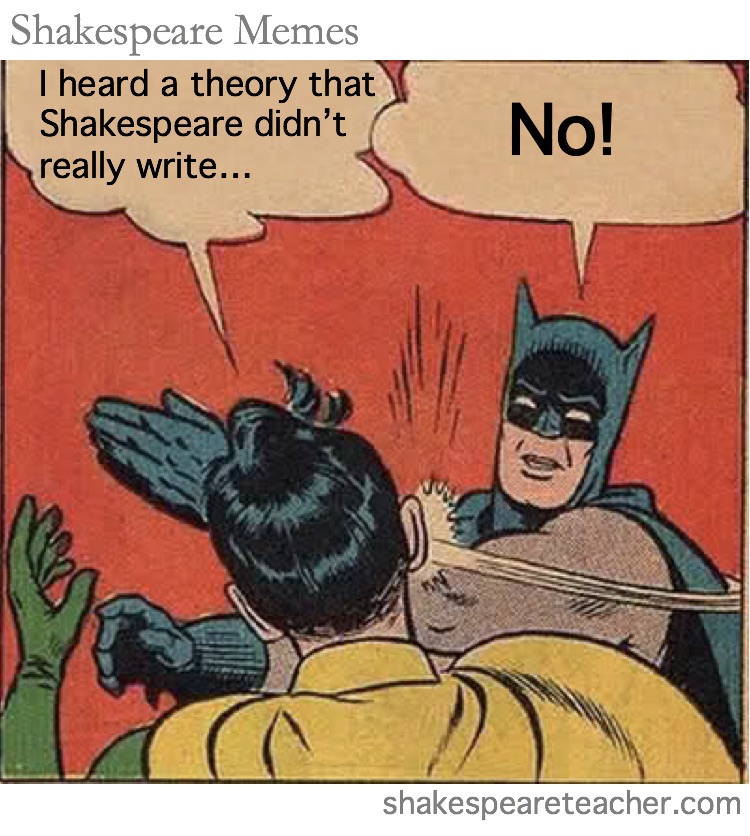


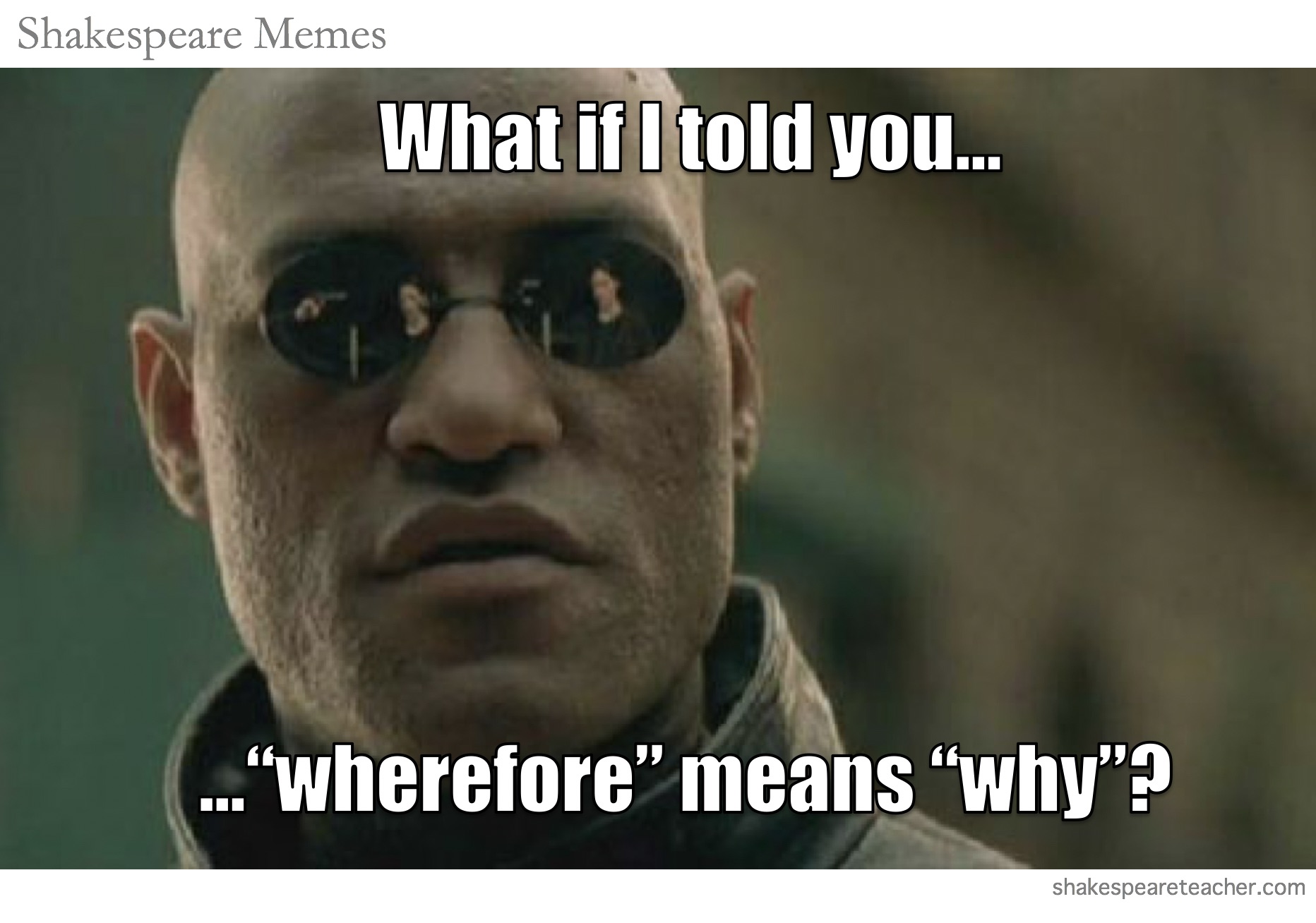
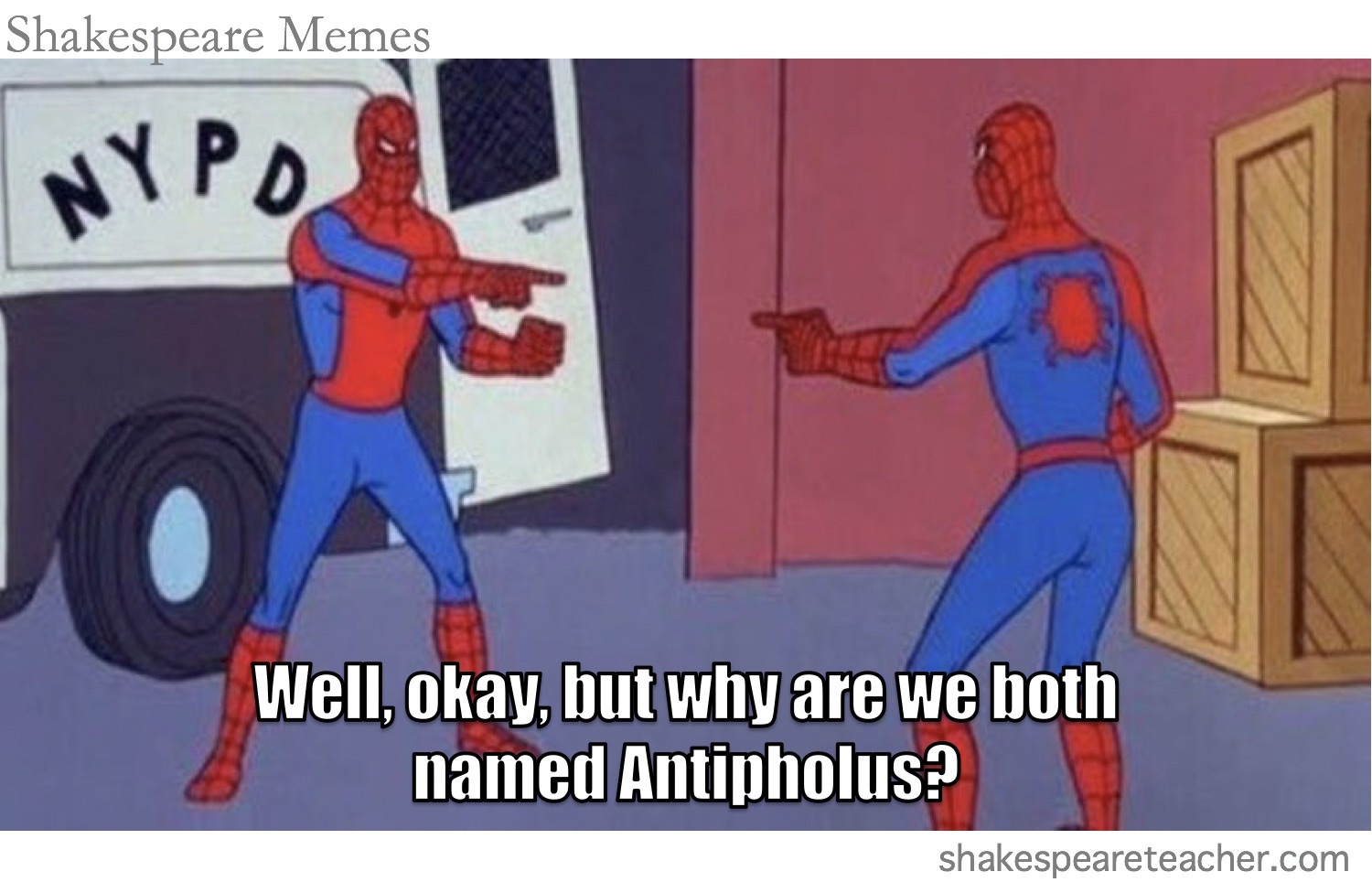



From Macbeth:
Some say he’s mad; others that lesser hate him
Do call it valiant fury; but, for certain,
He cannot buckle his distemper’d cause
Within the belt of rule.
Shift around the letters, and it becomes:
Fear: Trump in the White House by clearheaded Bob and the calculated anonymous Times article mark the last stretch of this hurt lifeless vision.
The president’s $12 billion bailout for farmers hurt by retaliatory tariffs is facing criticism from his fellow Republicans, even as his own Agriculture Secretary laments that the payouts won’t be enough to contain the damage.
From Macbeth:
Knock, knock, knock! Who’s there, i’ the name of Beelzebub? Here’s a farmer that hanged himself on the expectation of plenty: come in time; have napkins enough about you; here you’ll sweat for ’t.
Shift around the letters, and it becomes:
Trump’s trade war hobby’s been unhelpful to the zone of vehement folks who – on no fence – elect him.
He then uses our checkbook to fix the kink in a hokey plan to make America great again yet.
Because Twitter didn’t become well-known until its overhaul in 2006, many people don’t realize that the popular social media platform is actually over a thousand years old.
I was combing through the archives the other day when I found the old Twitter feed of the historical Macbeth. A fascinating primary source document, the daily musings of the king paint a picture of a one-of-a-kind leader, the likes of which we may never see again.
In honor of Shakespeare’s birthday, I am pleased to present a selection of these tweets that may be of interest to fans of the play.
Enjoy!

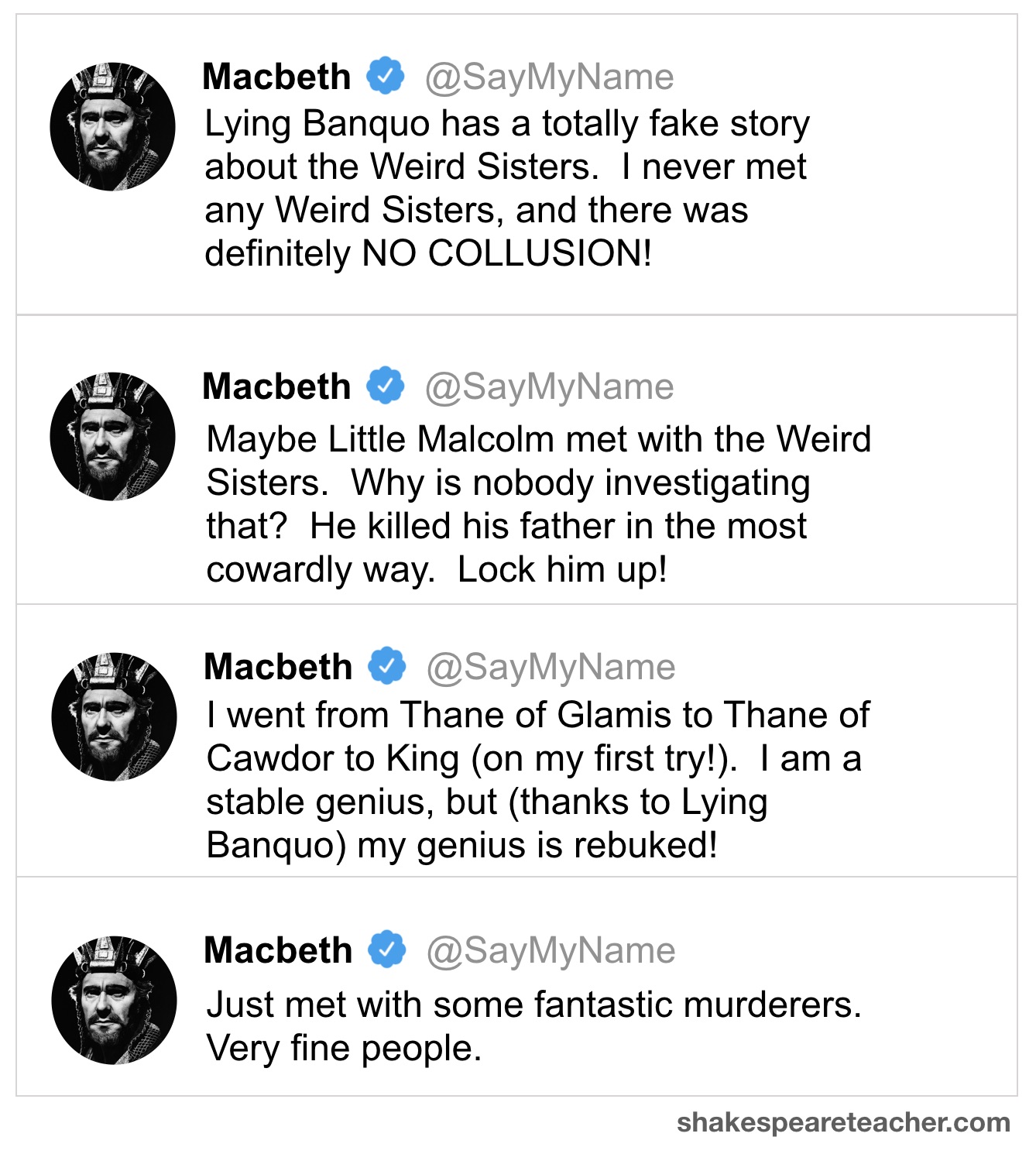


The feed breaks off there. We can only assume that Macbeth chose that moment to step away from social media and instead turn his attention to the serious business of running Scotland.
But this collection of tweets remains a digital monument to a leader who was clearly way ahead of his time!
From Macbeth:
Those he commands move only in command,
Nothing in love; now does he feel his title
Hang loose about him, like a giant’s robe
Upon a dwarfish thief.
Shift around the letters, and it becomes:
The Mooch shamed, even cudgeled, loyal men on behalf of hog Trump, who thinks of his administration as a television elimination show.
No! Be gone!
In Macbeth, King Duncan receives a report on the execution of the Thane of Cawdor, who had betrayed him in the war against Norway. Duncan notes his own surprise at the deception:
There’s no art
To find the mind’s construction in the face:
He was a gentleman on whom I built
An absolute trust.
No art to find the mind’s construction in the face? Is it really possible that nobody in Shakespeare’s time (or even Macbeth’s time) had thought to study this? And if not, where is Shakespeare getting the idea from? My Arden Macbeth (Sandra Clark and Pamela Mason, eds.) says that it is proverbial, but that only raises more questions about what is meant by it. In all honesty, I think it’s time to bring back the Shakespeare Follow-Up.
First of all, the idea that different emotions would register in an observable way has always been as plain as the smile on your face. If anyone wants to doubt that, they need only look at the types of masks used in ancient Greek theatre to represent comedy and tragedy and see if they can tell which is which.

So the idea of finding the mind’s construction in the face was well known in Macbeth’s time. But what about someone who intends to deceive? How could Duncan have uncovered Cawdor’s treachery?
As long as there have been liars, there have been techniques attempting to reveal them, which have had various degrees of accuracy. In ancient China, they used to put dried rice in a suspect’s mouth and ask them to spit it out. If they were lying, their mouths would be too dry to spit out the rice. At least, that’s what they said on The Unit (see 5:30 to 7:10 below):
In the clip, Jonas mentions the witch trials, and indeed, the trial by ordeal was a common method of uncovering deceivers throughout medieval Europe, whether by water, combat, fire, or hot iron. As Europe approached the Renaissance, these beliefs began to slowly evolve, marking a significant gap between the worldviews of Macbeth’s time and Shakespeare’s.
Shakespeare himself seemed intrigued with the idea that one could alter one’s own face to conceal evil intentions. Hamlet has an epiphany that “one may smile, and smile, and be a villain.” And in Henry VI, Part Three, the future King Richard III actually brags about being such a villain:
Why, I can smile, and murder whiles I smile,
And cry ‘Content’ to that which grieves my heart,
And wet my cheeks with artificial tears,
And frame my face to all occasions.
Could Shakespeare have been influenced by the writings of French philosopher Michel de Montaigne? In his late 16th-century essay Of Physiognomy, Montaigne muses on this very question, ascribing moral implications to a false aspect:
The face is a weak guarantee; yet it deserves some consideration. And if I had to whip the wicked, I would do so more severely to those who belied and betrayed the promises that nature had implanted on their brows; I would punish malice more harshly when it was hidden under a kindly appearance. It seems as if some faces are lucky, others unlucky. And I think there is some art to distinguishing the kindly faces from the simple, the severe from the rough, the malicious from the gloomy, the disdainful from the melancholy, and other such adjacent qualities. There are beauties not only proud but bitter; others are sweet, and even beyond that, insipid. As for prognosticating future events from them, those are matters that I leave undecided.
Sorry, Duncan.
The 18th-century actor David Garrick turned this vice into a virtue, developing great fame for his repertoire of facial expressions that could be used to convey a wide range of emotions on stage. Charles Darwin, in his 1872 work The Expression of the Emotions in Man and Animals, identified a specific set of facial expressions that he believed to be universal to humans as a product of evolution. Today, we know that, while many facial expressions are generally universal, they can be profoundly influenced by culture.
In the 20th century, the rise of the polygraph machine added an extra level of science to lie detection. The machine registers physiological responses the subject exhibits while answering questions. It’s not infallible, and it’s not unbeatable, but it just might have been able to reveal the Thane of Cawdor’s treachery, had it been available to apply.
But as far as finding the mind’s construction in the face, we should turn to the poker community, which has made a small science of identifying expressions, statements, and actions that reveal the strength or weakness of a players hand. When there’s money on the table, every advantage matters. These “tells” are catalogued, studied, observed, and – of course – faked when the opportunity arises. Some poker players, to defend against being read in this way, will conceal their faces with visors, hoodies, or even sunglasses. Interestingly enough, sunglasses were first invented in 12th century China, where they were originally worn by judges to assist them in concealing their emotions during a trial.
But the master of the art of finding the mind’s construction in the face would have to be Dr. Paul Ekman. Ekman is mostly famous for discovering the “micro expression,” a facial tell that sweeps across the face for a fraction of a second, betraying the subject’s true emotional state. They cannot be hidden. They cannot be faked. They also cannot be read without deep training, which Ekman provides.
Ekman and his research became the inspiration for the Fox crime drama Lie to me*. On the show, Tim Roth plays Dr. Cal Lightman, a fictionalized version of Ekman. Each episode shows Lightman and his team using micro expressions and other scientific tells to find out the truth for desperate clients. If you’ve read this essay this far, you might enjoy the show:
So, with all of these clues available, how well does Duncan learn from his experience with the traitorous Thane of Cawdor? He grants the now-available title to Macbeth, and then Macbeth kills him. If there was an art to find the mind’s construction in the face, Duncan was very, very bad at it.
In this October 2016 TED talk, Shakespearean actor and educator Rob Crisell makes a passionate argument for Shakespeare, for teaching Shakespeare, and for teaching Shakespeare through performance. Whether you’re already with him on these three points or not, it’s well worth checking out:
There’s just something about this play that lends itself well to quoting during these trying days.
From Macbeth:
I think our country sinks beneath the yoke;
It weeps, it bleeds, and each new day a gash
Is added to her wounds
Shift around the letters, and it becomes:
I can’t handle the outrages. It synchs worse and worse.
The needy White House id obeys Putin and a KKK baddie.